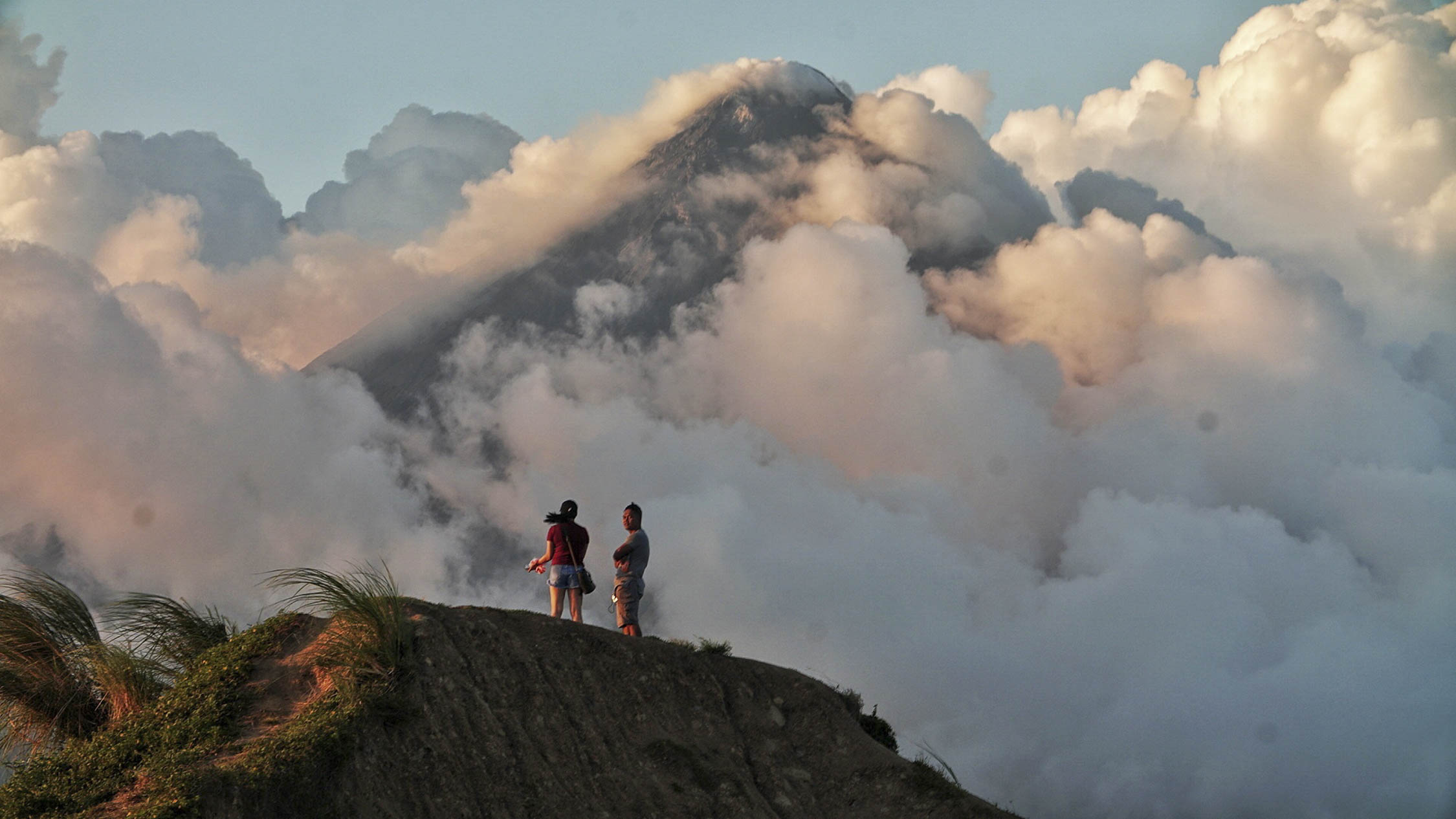
MAYON UP CLOSE Tourists on a hill at Barangay Estancia in Legazpi City wait for clouds to clear to see Mayon volcano up close. —MARK ALVIC ESPLANA
LEGAZPI CITY – The huge volume of volcanic sediments left on the slopes of Mt. Mayon following its eruption last year could be mobilized once moderate to heavy rain pour over Albay province, the Philippine Institute of Volcanology and Seismology (Phivolcs) said.
The agency warned villagers living along river channels near the volcano’s slopes to be on alert for lahar and mudflows that could be triggered by heavy rainfall, especially after the Bicol region was affected by successive storms.
The Bicol provinces were hit by floods and landslides in the last week of December last year as Tropical Depression “Usman” crossed the country. Recently, another tropical depression, “Amang,” dumped heavy rain on the region.
Volcanic debris
Ed Laguerta, Phivolcs resident volcanologist here, said Mayon spewed out at least 21 million cubic meters of lahar and 6.2 million cubic meters of molten rocks and volcanic debris in January last year.
“Torrential rains could move these deposits and breach tributaries that in effect could cause widespread mudflows in low-lying areas at the foot of the volcano,” Laguerta said.
At least 26 villages in Guinobatan, Camalig, Daraga and Sto. Domingo towns are at risk of lahar and mudflows, he added.
Laguerta said three teams of Phivolcs scientists had been studying Mayon in the past two weeks to assess whether they would recommend downgrading the volcano’s alert status.
A Phivolcs bulletin on Friday showed that Alert Level 2 (moderate level of unrest) remained over the volcano. —MAR S. ARGUELLES